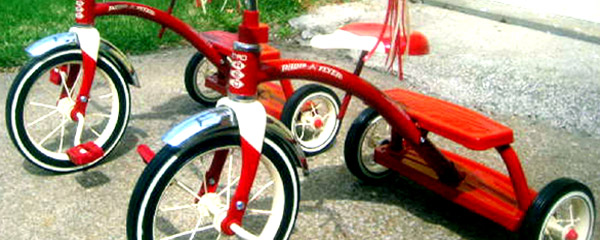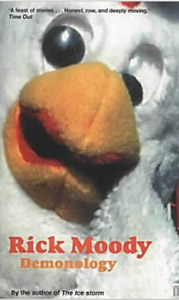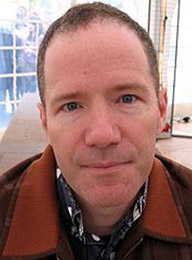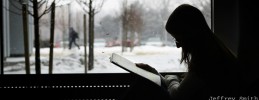
photo ©sdemory
by Neelima Vinod
Rick Moody has said that ‘Boys’, from the collection Demonology, is one of his best short stories. For me, it works because it makes the experience of the twin boys so physical you can almost feel the two of them jump off the page and enter your life. But it is a very unconventional story. The writing is very contemporary. The structure mimics real time. Moody has set certain rules he wants to follow, such as using the word ‘boys’ in every sentence throughout the eight pages of the story. This gives it a jumpy rhythm, so characteristic of young boys in general.
 Condensing childhood into the confines of a short story gives perspective and, for me, a mother of twins, it was like a jolt. When my twins fight or play with each other like there is no one else in the world, I sometimes think that this stage of their lives will go on forever. But Moody reminds me that the children will change, that they do change every moment.
Condensing childhood into the confines of a short story gives perspective and, for me, a mother of twins, it was like a jolt. When my twins fight or play with each other like there is no one else in the world, I sometimes think that this stage of their lives will go on forever. But Moody reminds me that the children will change, that they do change every moment.
What stays with you, long after reading this story, is the point of entry – the doorway is where much of the action happens. ‘Boys’ begins when the boys enter the house as swaddled babies, covered in puke and baby silliness. The same door welcomes the toddlers who babble and call out to their mother, then the boys who play tricks on their sister. Interestingly, the boys are unnamed, so they represent every child and every parent’s experience of having children.
Like many boys, these boys are destructive. They tease their sister by burying her dolls and force-feeding her with disgusting concoctions made from fantastic lists of ingredients:
…lighter fluid, vanilla pudding, drain-opening lye, balsamic vinegar, blue food coloring, calamine lotion, cottage cheese, ants, a plastic lizard one of them received in his Christmas stocking, tacks, leftover mashed potatoes, Spam, frozen lima beans, and chocolate syrup…
They enter the house in their baseball gear, with their lacrosse sticks, or wearing their skates. Next they become adolescents, and Moody explains their bursting hormones in no-nonsense language; the acne, the desire, the temptations, the experiences are all viscerally rendered:
Boys enter the house having masturbated in train-station bathrooms , in forests, in beach houses, in football bleachers at night under the stars, in cars (under a blanket), in the shower, backstage, on a plane, the boys masturbate constantly, identically, three times a day in some cases, desire like a madness upon them, at the mere sound of certain words, words that sound like other words, interrogative reminding them of intercourse, beast reminding them of breast, sect reminding them of sex.
What changes the boys, besides their raging hormones, is their sister’s illness, perhaps the most touching part of the story: “Boys enter the house and tell their completely bald sister jokes about baldness. Boys hold either hand of their sister, laying aside differences, having trudged grimly into the house.” What starts as the story of two brothers then becomes the story of how twins become men.
Their father’s death completes this change. The story is really the story of all boys, all children who come home swaddled in blankets and then leave one day because the house is no longer home. It is tragic because of its inevitability. It is like fast-forwarding the story  of children growing up, finding their own lives and becoming men.
of children growing up, finding their own lives and becoming men.
This is not a depressing story. There is so much infectious energy in every line. Moody takes the reader’s breath away with his fast and heavily packed prose. He makes you think about the togetherness of twins – and how this is often an illusion. Twins are born together and grow up together, but how long can they mirror each other?
Life changes them bit by bit. They begin to diverge gradually: one gets into trouble, the other doesn’t, one has things the other doesn’t. There is a psychological see-saw at play. The confines of the house become a womb that forges their characters. When they leave the house, their departure is inevitable and yet so abrupt, as though the experience of being twinned lasts only for that brief magical time of childhood. ‘Boys, no longer boys, exit.’
Bittersweet, ‘Boys’ is every parent’s story; a bird’s eye view of domestic routine and the moments in life that often go unnoticed. For those with no children, it comes close to having, at least for eight pages, twins of your own.

